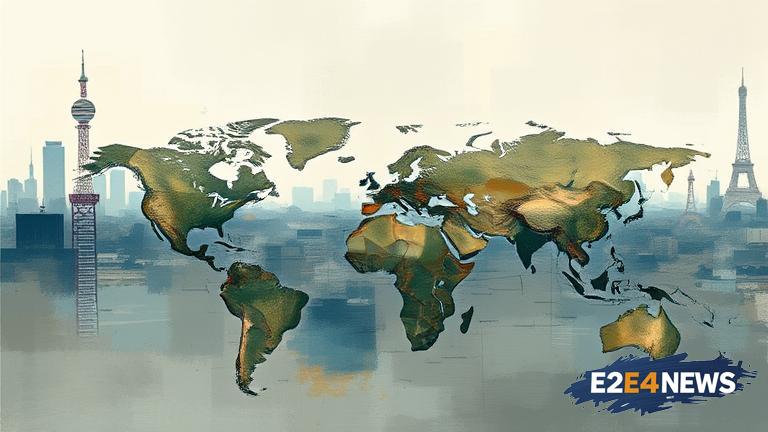The current state of the global economy is marked by increasing instability, with various factors contributing to the uncertainty. The ongoing trade wars, geopolitical tensions, and rising national debt are all taking a toll on the world economy. The COVID-19 pandemic has also had a lasting impact, with many countries still struggling to recover. The situation is further complicated by the rising costs of living, stagnant wages, and growing wealth inequality. As a result, many individuals and families are finding it difficult to make ends meet, leading to increased poverty and social unrest. The economic instability is also having a profound impact on the environment, with many countries prioritizing short-term economic gains over long-term sustainability. The consequences of this approach are already being felt, with climate change, deforestation, and pollution all on the rise. Furthermore, the economic instability is also affecting the political landscape, with many countries experiencing increased polarization and social divisions. The rise of nationalist and populist movements is also a concern, as they often promote protectionist policies that can exacerbate the economic instability. In addition, the economic instability is also having a significant impact on the global supply chain, with many companies struggling to maintain their operations. The situation is further complicated by the ongoing technological advancements, which are transforming the nature of work and the economy. While these advancements offer many opportunities, they also pose significant challenges, particularly for workers who are not equipped with the necessary skills to adapt. The economic instability is also affecting the global financial system, with many countries experiencing currency fluctuations and stock market volatility. The situation is further complicated by the rising costs of borrowing, which are making it difficult for many individuals and businesses to access credit. In conclusion, the global economy is facing unprecedented challenges, and it is essential that policymakers and business leaders work together to address these issues. This will require a coordinated effort to promote sustainable economic growth, reduce inequality, and protect the environment. It will also require significant investments in education and training, to ensure that workers have the necessary skills to adapt to the changing economy. Moreover, it is crucial to promote international cooperation and diplomacy, to reduce the risks of trade wars and geopolitical tensions. Ultimately, the future of the global economy depends on our ability to work together to address the challenges we face, and to create a more sustainable and equitable economic system. The world economy is at a critical juncture, and it is essential that we take bold action to ensure a prosperous and stable future for all. The economic instability is a global problem, and it requires a global solution. We must work together to promote economic cooperation, reduce inequality, and protect the environment. The future of the global economy is uncertain, but with collective action, we can create a brighter future for all. The economic instability is a wake-up call, and it is time for us to take action. We must prioritize sustainable economic growth, reduce inequality, and protect the environment. The global economy is facing unprecedented challenges, but with determination and collective action, we can overcome them.





